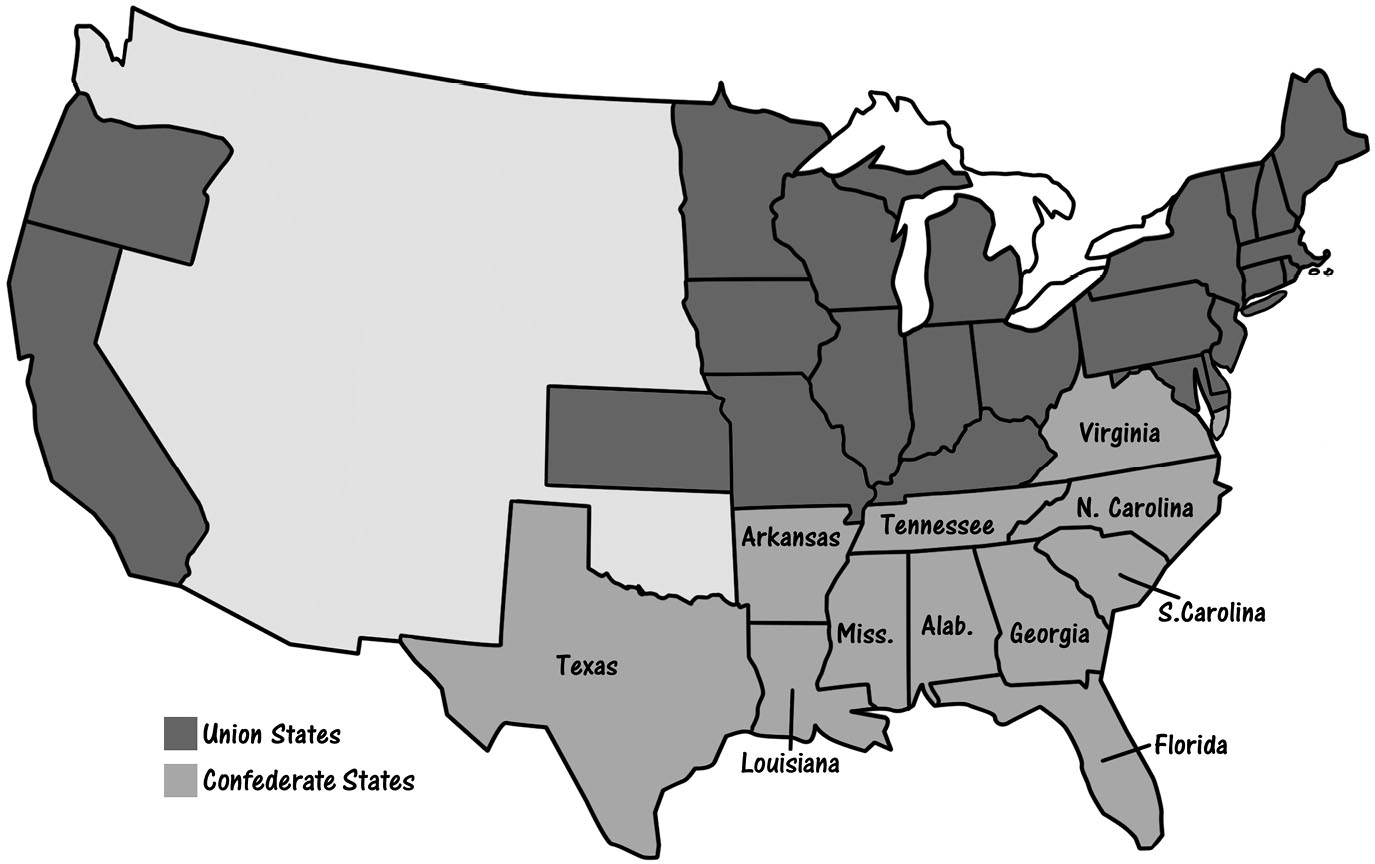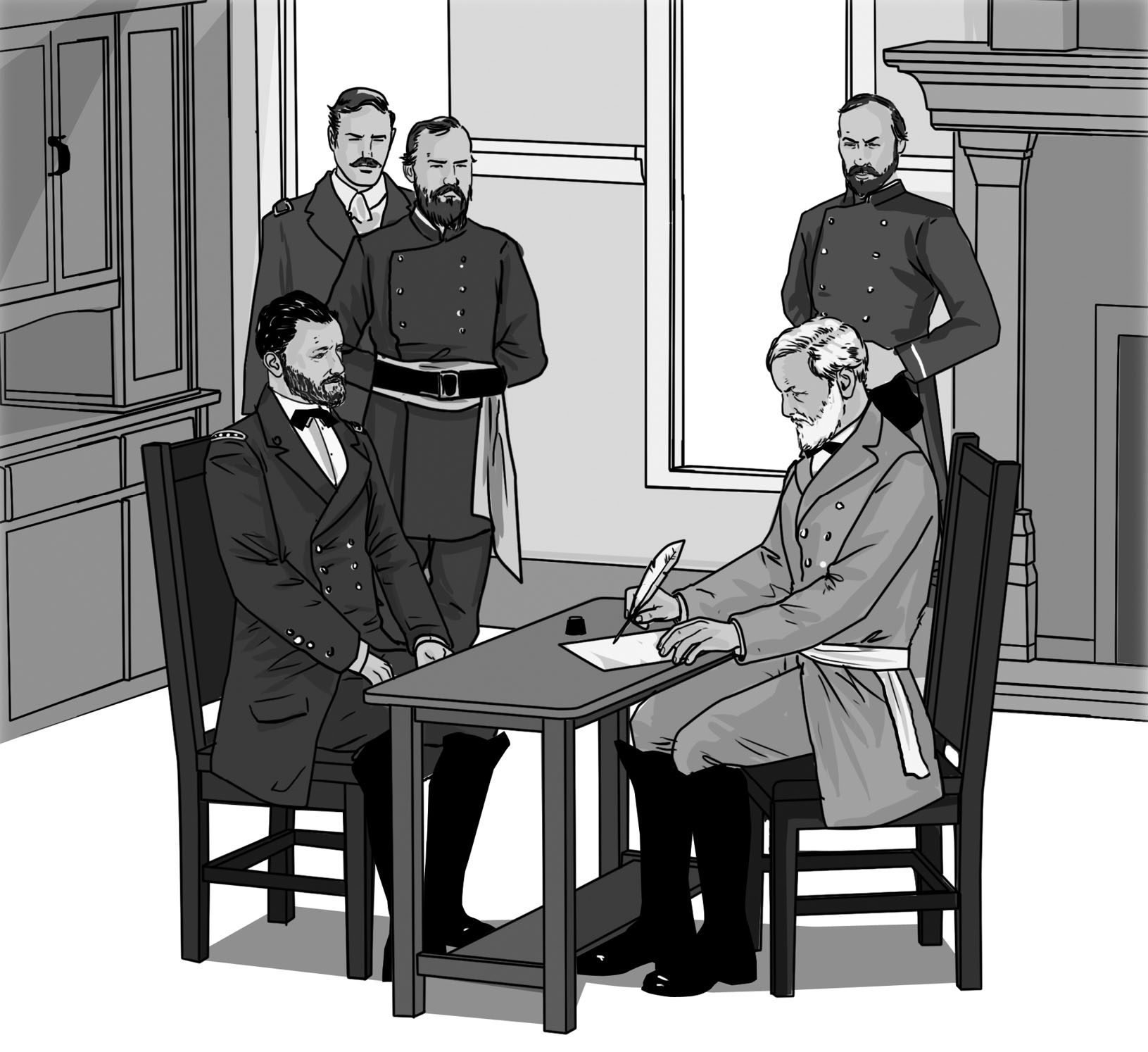CHAPTER 6
The River at War
In 1860, Abraham Lincoln was elected the sixteenth president of the United States. The question that horribly divided the country was over slavery. Owning slaves was legal in Southern states, but in Northern states, it was against the law.

Abraham Lincoln
Lincoln was from the North. He hated slavery. He wanted to make slavery illegal in every state of the Union. Southern states believed that it was up to each state—not the president—to decide its own laws.
By 1861, eleven Southern states had decided to leave the United States and start their own government. They called it the Confederate States of America.

By April, America was at war. Northern Union soldiers were battling Southern Confederate soldiers. Both sides needed to bring supplies from Eastern states through the Gulf of Mexico to places farther west. Access to the Port of New Orleans was vital. (Louisiana was part of the Confederacy.)
In April 1862, the Union navy sailed in through the Gulf and made a surprise attack on the city. Confederate soldiers had expected them to arrive from the opposite direction—from the north. They had moved most of their troops out of New Orleans.
The Union won the battle easily.
Union soldiers and sailors were relentless. In the northern Mississippi River, the army and navy worked together. They moved along the river on paddle steamboats and marched in from the east. Battle by battle, they took over the river. Troops from the north captured New Madrid, Missouri, and Memphis, Tennessee. From New Orleans, they moved upriver to Baton Rouge, Louisiana, and to cities in Mississippi.


Ulysses S. Grant
General Ulysses S. Grant was in charge of the Union troops in the area. There was one place he was determined to capture. If his troops could take Vicksburg, Mississippi, they would control the entire river. In the spring of 1863, Grant surprised the Confederates at Vicksburg. The battle raged for forty-seven days. When it was over, the Mississippi River belonged to the Union. It was one of the turning points in the Civil War.
The war continued for two more years. Finally, on April 9, 1865, General Robert E. Lee, the leader of the Confederate troops, surrendered to General Ulysses S. Grant at the Appomattox Court House in Virginia. The Confederate states were no longer a separate country. As before the war, they were part of the United States.

Before long, the call of “Steamboat a-comin’” could be heard along the river. Billowing smoke drifted in the distance. The river was alive once again.